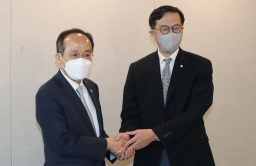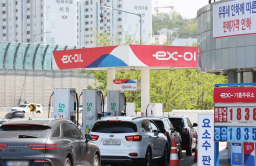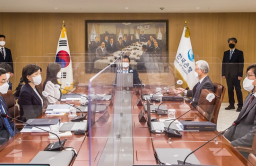-
KOSPI 2577.27 -2.21 -0.09%
-
KOSDAQ 722.52 -7.07 -0.97%
-
KOSPI200 341.49 +0.02 +0.01%
-
USD/KRW 1396 -2.00 0.14%
BOK steps up inflation fight with back-to-back rate hikes
Central bank
BOK steps up inflation fight with back-to-back rate hikes
Governor Rhee says it is reasonable to expect the rate to rise to 2.25-2.5% by year-end as it raises inflation forecast to 14-year high
By
May 26, 2022 (Gmt+09:00)
2
Min read
News+
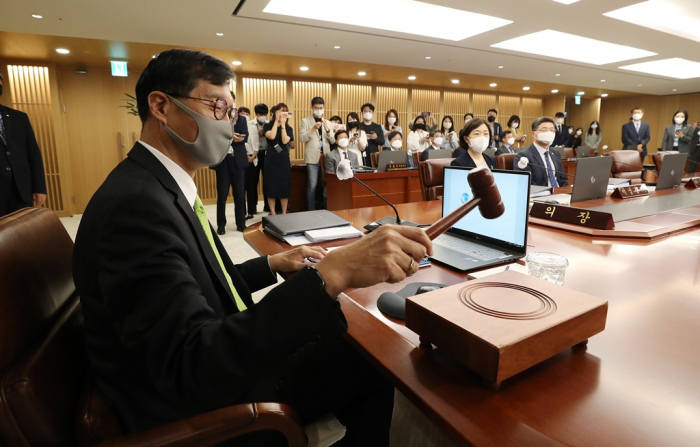
South Korea’s central bank delivered a back-to-back interest rate hike for the first time in 15 years on Thursday to curb rampant consumer prices in Asia’s fourth-largest economy, indicating further policy tightening as it raised its inflation forecast to the highest level since the 2008-09 global financial crisis.
The Bank of Korea increased the base interest rate by 25 basis points to 1.75%, the highest since mid-2019, in its first monetary policy meeting chaired by Governor Rhee Chang-yong. The central bank raised the rate last month in an unexpected move.
It was the first time for the monetary authority to deliver back-to-back monthly rate hikes since 2007 when it raised borrowing costs in July and August.
“The negative ripple impact of prices is expected to be greater than (that of) growth. This is the most important message from the Monetary Policy Board meeting today,” Rhee told reporters after the rate hike.
RAISES INFLATION FORECAST
The BOK ramped up its inflation forecast for this year to 4.5%, the largest since 2008, from the previous 3.1%. Last month, consumer prices soared 4.8%, the largest growth since October 2008.
The central bank and the government predicted inflation to top 5%, a level that has not been seen since September 2008.
Consumer inflation is unlikely to cool in the near term as global commodity prices stayed high given the ongoing war in Ukraine and sustained supply chain disruption. Global food production was predicted to significantly decrease on droughts and floods, adding to inflationary pressure. South Korea is also seeking an extra budget.
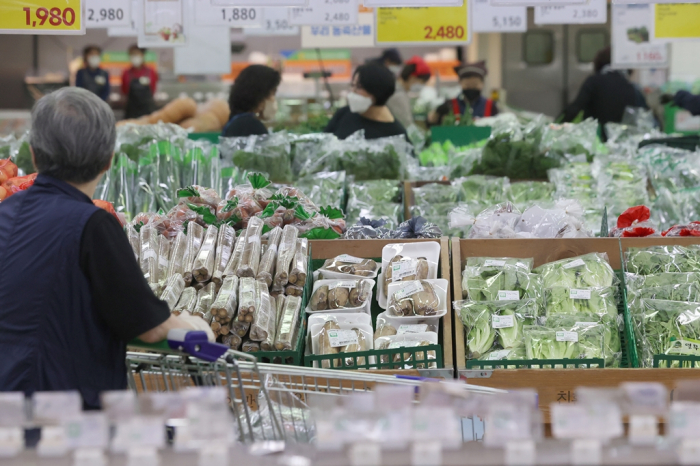
“The board sees it as warranted to conduct monetary policy with more emphasis on inflation for some time, as the Korean economy is expected to continue its recovery and inflation to run above the target level for a considerable time, despite underlying uncertainties in domestic and external conditions,” the central bank said in a statement.
MORE TO COME
Rhee suggested the BOK will raise interest rates further, given rampant inflation.
“Inflation expectations have risen significantly,” Rhee said. “I think it is reasonable for the financial market to expect the rate to rise to 2.25-2.5% per annum by year-end.”
That means the BOK needs to increase borrowing costs at least twice in the central bank meetings in July, August, October and November.
Rhee, however, reiterated he would allow South Korea’s rate premium to become a discount. If the Federal Reserve increases its benchmark overnight interest rate by half a percentage point in both June and July, South Korea’s interest rate premium is expected to become a discount as early as July.
“Considering Korea’s situation, it is tolerable,” Rhee said.
Earlier this month, the US central bank set its target federal funds rate to a range between 0.75% and 1%.
The BOK lowered its economic growth forecast for this year to 2.7% from the previous 3.0%, amid a trade deficit on surging raw material prices, the slowing Chinese economy due to COVID-19 lockdowns and weakening domestic consumption on soaring inflation.
(Updated with BOK Governor Rhee's comments and background)
Write to Mi-Hyun Jo at mwise@hankyung.com
Jongwoo Cheon edited this article.
More To Read
-
May 16, 2022 (Gmt+09:00)
-
May 03, 2022 (Gmt+09:00)
-
Apr 14, 2022 (Gmt+09:00)
-
Feb 24, 2022 (Gmt+09:00)


